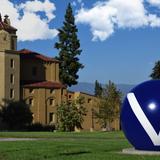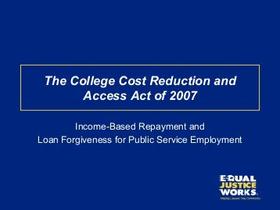- Victor Valley Community College District is accessible to all people in the community who seek growth and can benefit from its programs, courses, and activities. Victor Valley College's educational, civic, social, and cultural programs are designed to meet the needs of individual students and the community as a whole.
School Highlights
Victor Valley College serves 15,112 students (25% of students are full-time).
The college's student-teacher ratio of 26:1 is lower than the state community college average of 32:1.
Minority enrollment is 82% of the student body (majority Hispanic), which is more than the state average of 77%.
Quick Facts (2025-26)
- Enrollment: 15,112 students
- In-state tuition: $1,114
- Out-state tuition: $5,746
- Acceptance Rate: 86%
- Student-teacher ratio: 26:1
- Minority enrollment: 82%
- Source: Integrated Postsecondary Education Data System (IPEDS)
Top Rankings
Victor Valley College ranks among the top 20% of public schools in California for:
Category
Attribute
Affordability
School Overview
The teacher population of 579 teachers has stayed relatively flat over five years.
Victor Valley College
(CA) Community College Avg.
Carnegie Classification
Associate's Colleges: Mixed Transfer/Career & Technical-Mixed Traditional/Nontraditional
Baccalaureate/Associate's Colleges: Associate's Dominant
Institution Level
At least 2 but less than 4 years
At least 2 but less than 4 years
Institution Control
Public
Public
Total Faculty
579 staff
315 staff
School Calendar
Student Body
The student population of Victor Valley College has grown by 15% over five years.
The student-teacher ratio of 26:1 has increased from 19:1 over five years.
The Victor Valley College diversity score of 0.56 is less than the state average of 0.70. The school's diversity has stayed relatively flat over five years.
Total Enrollment
15,112 students
9,796 students
Student-Teacher Ratio
26:1
32:1
# Full-Time Students
3,808 students
1,259 students
# Part-Time Students
11,304 students
8,537 students
# Enrollment Undergraduate
151 students
242 students
# Full-Time Undergraduate Students
3,808 students
1,250 students
# Full-Time Graduate Students
n/a
63 students
# Part-Time Undergraduate Students
11,304 students
8,299 students
# Part-Time Graduate Students
n/a
10 students
Total Dormitory Capacity
n/a
121 students
% American Indian/Alaskan
n/a
n/a
% Asian
2%
13%
% Hispanic
63%
47%
% Black
10%
7%
% White
18%
23%
% Hawaiian
n/a
1%
% Two or more races
5%
5%
% Non Resident races
n/a
1%
% Unknown races
1%
3%
Diversity Score
0.56
0.70
College Completion Rate (Students who graduate in less than 4 years)
24%
42%
College Completion Rate (Students who graduate in 4 years or more than 4 years)
n/a
43%
Average Graduate Earnings (10 Years)
$32,400
$34,700
Tuition and Acceptance Rate
The public in-state tuition of $1,114 is less than the state average of $1,516. The in-state tuition has declined by 21% over four years.
The public out-state tuition of $5,746 is less than the state average of $6,779. The out-state tuition has declined by 38% over four years.
In-State Tuition Fees
$1,114
$1,516
Out-State Tuition Fees
$5,746
$6,779
% Students Receiving Some Financial Aid
87%
85%
Median Debt for Graduates
$9,300
$10,500
Median Debt for Dropouts
$6,000
$6,239
Acceptance Rate
86%
93%
Source: 2024 (or latest year available) Integrated Postsecondary Education Data System (IPEDS) , School Administrators
School Notes
- School Mascot: Rams
- History and Descriptive Background Victor Valley College was established by authority of the voters in 1960 with the first classes offered in 1961. The College is proudly celebrating its 50th year of dedicated service to the region, which will be commemorated throughout 2011 with a variety of events and activities. The College is located 90 miles north of Los Angeles in the High Desert of Southern California and covers a geographic service area of approximately 1,700 square miles. Communities served by the District include Adelanto, Apple Valley, Helendale, Hesperia, Las Flores, Lucerne, Oro Grande, Phelan, Pi�on Hills, Victorville, Wrightwood, and other communities in the College�s sphere of influence. In the beginning, the College had one feeder high school and served a population of roughly 70,000 residents. The region was formerly described as semi-rural, but over the last 15 years has been transformed into an industrial/commercial and retail center for a burgeoning population. According to local economists, this unprecedented growth is a result of the region�s proximity to major markets, inexpensive cost of land, affordable housing, access to major transportation arteries, and the relative low cost of living. Changing Emphasis Since 1961, the College has progressed far beyond its humble beginnings to become a major institution of higher learning offering a complex schedule of educational opportunities to meet the changing needs of this growing region. Today the College has 14 + feeder high schools and diploma-granting institutions and serves a population base of nearly 400,000 people. This translates into approximately 14,000 students per semester and an annual FTES of over 10,000. To demonstrate these changing times, the College now offers courses such as solar panel installation, maintenance, and repair; hybrid car maintenance and repair; GPS studies; land restoration; and digital animation to name a few. A wider transformation is taking place at the College because of the passage of the first local bond measure to be approved by the voters since an initial capital bond was passed in the early 60s. In November 2008, the voters approved a bond measure, Measure JJ, dedicated to the elimination of past debt, the upgrade of College infrastructure, the purchase of land for a future campus site on the westside of the Victor Valley, and funding for the construction of an Eastside Public Safety Training Center. This center is now under construction with a completion date scheduled for December 2011 and will serve as a regional training facility for firefighters, paramedics, police, and correctional officers. Additionally, the bond funded a one megawatt solar power generating plant on campus that supplies more than a third of the College�s energy needs. Innovative Partnerships Participation in innovative partnerships has enabled the College to expand programs, offer new training opportunities, and increase revenues that, in part, replace funds lost due to reductions in State appropriations. For example, the College has formed partnerships with local hospitals resulting in an increase in the number of nursing students able to enroll in the College�s program. Internships with one of the local cities have created additional training opportunities for automotive students, and grants received through State and County agencies have expanded workforce development programs that eventuate in immediate employment opportunities for students. The College has also increased outside sources of revenue through lease agreements with local and regional entities. A History of Success For 50 years, thousands of residents from the High Desert and beyond have journeyed to the College and have gone on to achieve remarkable success. From their ranks are civic leaders, business people, service industry personnel, medical providers, first responders, and people of all walks of life who are contributors to the health and welfare of our community. In 2006, the College Foundation commissioned a study with UCLA Anderson School of Management to determine the economic impact the College has on our local economy. This report estimated the annual gross impact to be nearly $900 million.
- Sample of notable school alumni/alumnae:
- Brandon Wood, Local Business Owner and Community Leader -
- Jennifer Tarpley, Board of Trustees Member -
Frequently Asked Questions
How much does Victor Valley College cost?
Victor Valley College's tuition is approximately $1,114 for In-State students and $5,746 for Out-State students.
What is the acceptance rate of Victor Valley College?
The acceptance rate of Victor Valley College is 86%, which is lower than the state average of 93%.
Who are famous alumni from Victor Valley College?
Victor Valley College famous alumni include: Brandon Wood, Local Business Owner and Community Leader and Jennifer Tarpley, Board of Trustees Member.
What is Victor Valley College's ranking?
Victor Valley College ranks among the top 20% of community college in California for: Least expensive tuition.
Recent Articles

Community Colleges in 2025: Combating Stereotypes with Impact
Updated insights on how community colleges are dispelling myths, growing enrollment, and expanding pathways in 2025.

2025 FAFSA Changes Explained for Community College Students
A comprehensive guide to 2025 FAFSA changes, what community college students must know, new eligibility rules, timelines, and tips to maximize federal aid.

Mental Health Resources at Community Colleges 2025
A 2025 review of mental health resources at community colleges, covering counseling services, teletherapy, funding trends, and best practices.










